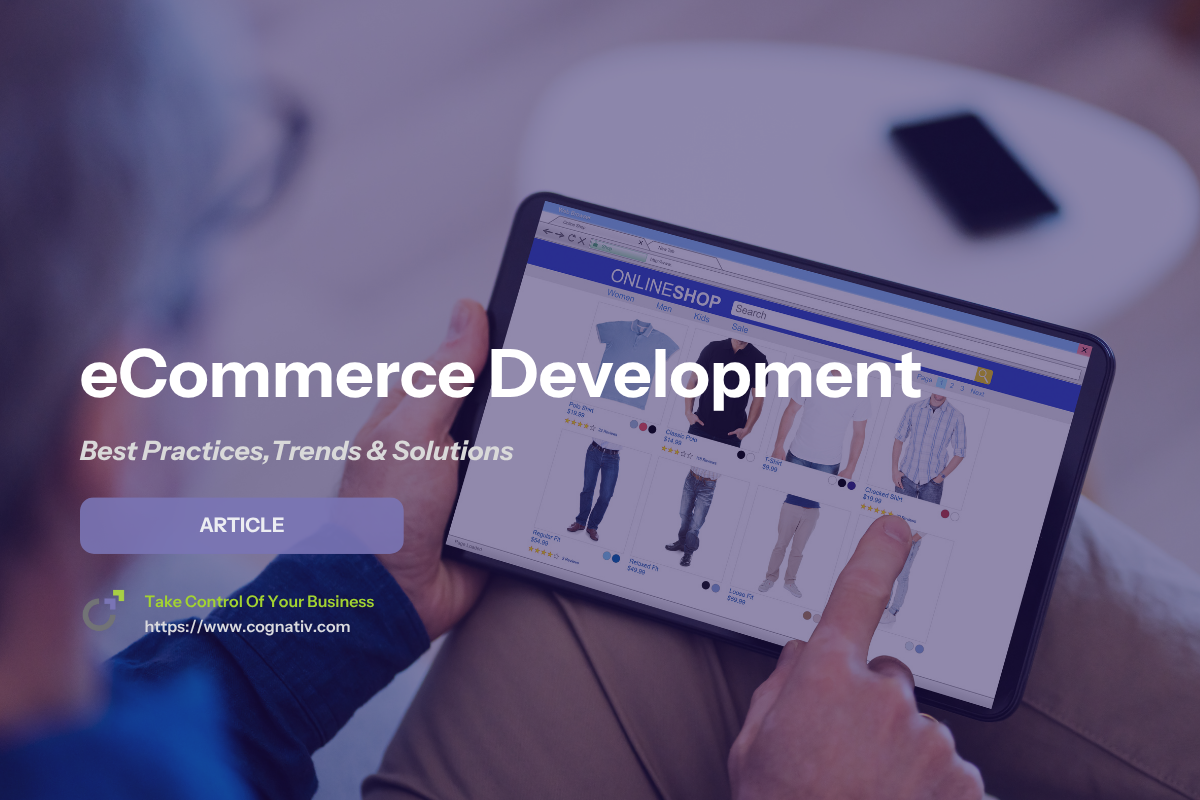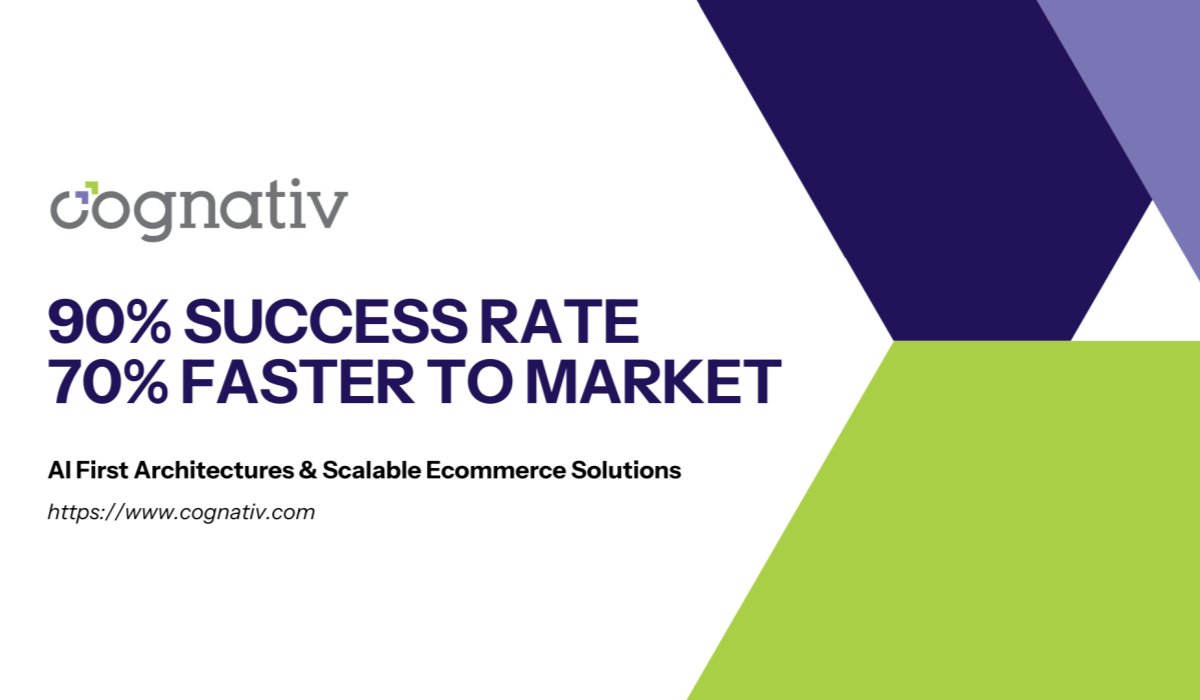Best Practices for E Commerce Software Development: Trends & Solutions
Looking to understand e commerce software development? This article explains its essential components and helps you choose between custom and ready-made solutions. Discover how it can boost your online business.
Key Takeaways
-
E-commerce software development is essential for creating digital tools that enhance online transaction processes and customer experiences.
-
Key components such as user interface design, payment gateway integration, and inventory management are crucial for a seamless online shopping experience.
-
Choosing between custom and ready-made e-commerce software requires careful consideration of business needs, budget, and scalability for long-term success.
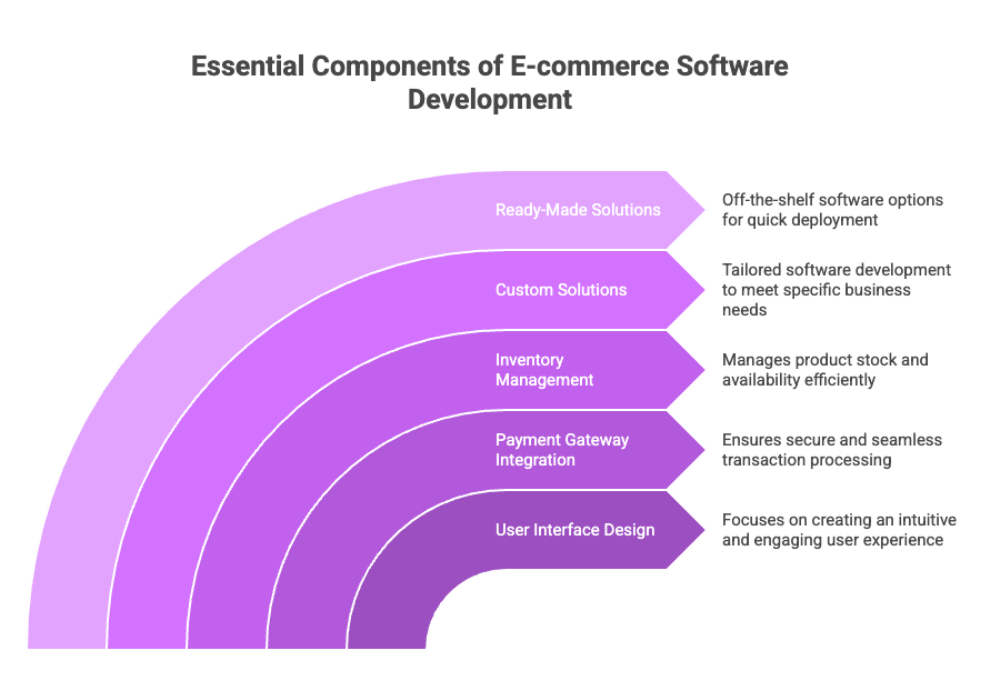

Understanding E Commerce Software Development
E-commerce software development involves creating and implementing digital tools and applications that facilitate online transactions. At its core, it aims to streamline online selling, enabling businesses to reach a global audience and enhance customer experiences. This process encompasses the creation, customization, and maintenance of software solutions specifically designed for online retail, making it an indispensable part of modern commerce. Software developers play a crucial role in custom ecommerce software development, and an ecommerce software development company plays a crucial role in this process. E commerce developers are essential to this evolving landscape of ecommerce software development.
The demand for effective e commerce website development has surged as ecommerce businesses increasingly move towards digital ecommerce platforms. E-commerce software depends on automating various aspects of online business operations, from website management and product cataloging to order processing and customer relationship management in the e commerce industry, including the management of an online marketplace, e commerce store, e commerce business, and an e commerce site, as well as services online. This growth reflects the expanding e commerce market and the need for ecommerce solutions.
Leveraging quality e-commerce development services enables businesses to enhance customer experience, utilize customer data effectively, and maintain robust security measures.
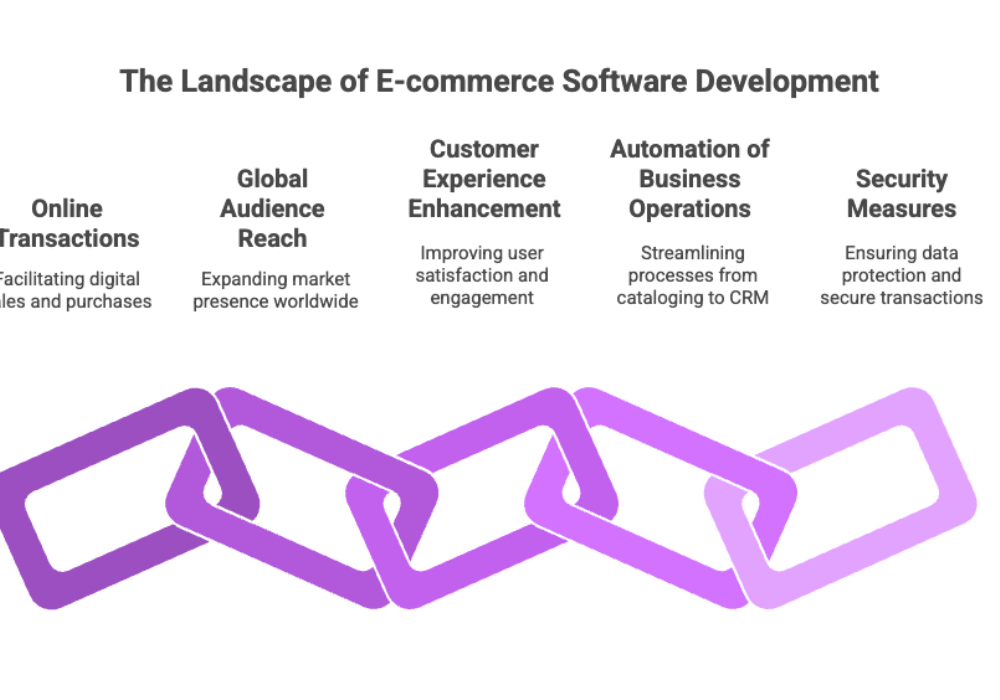

Key Components of E Commerce Software Development
Developing e-commerce software involves several key components that work together to create a seamless online shopping experience. These components include user interface design, payment gateway integration, inventory management systems, and a content management system. Each of these elements plays a crucial role in ensuring customer satisfaction and operational efficiency, making it an effective ecommerce solution.
User Interface Design
A well-designed user interface (UI) attracts and retains customers. Effective UX/UI elements ensure a clean, attractive, easy-to-navigate, and fast-loading site. An intuitive user interface enhances usability, simplifying the process for customers to find products, read descriptions, and complete purchases. User interfaces play a crucial role in this experience.
Mobile responsiveness ensures that e-commerce platforms work well on mobile devices, smartphones, and tablets. A user-friendly platform enhances customer engagement and can significantly impact mobile commerce sales commerce success.
Features of a user-friendly interface in an online store include easy navigation, precise product categorization, and key features of a straightforward checkout process.
Payment Gateway Integration
Payment gateways are integral to e-commerce software, facilitating secure payment gateways and enhancing customer trust. These gateways process credit card transactions, digital wallets, and other payment methods securely, ensuring that financial information is collected and transferred safely during checkout. Integrated payment processing gateways handle returns, refunds, and voided transactions, providing a seamless user experience without redirecting to third-party sites.
Secure payment systems build customer trust. Encrypting data before sending it to payment processors and complying with security standards ensures safe transactions through various systems, including POS systems and e-wallets. This integration extends beyond just shopping cart functionality.
Inventory Management Systems
Effective inventory management systems are vital for tracking current product levels, collecting sales data, and predicting future needs. These systems facilitate real-time tracking of stock levels, enabling businesses to make informed decisions and optimize their stock. By integrating inventory management software into the e-commerce platform and utilizing an order management system, businesses can track product availability in real-time and analyze sales patterns.
Advanced inventory systems can forecast demand based on sales data, helping businesses optimize their stock and meet customer demand efficiently. This advanced product information management integration capabilities streamline processes and enhance overall operational efficiency.
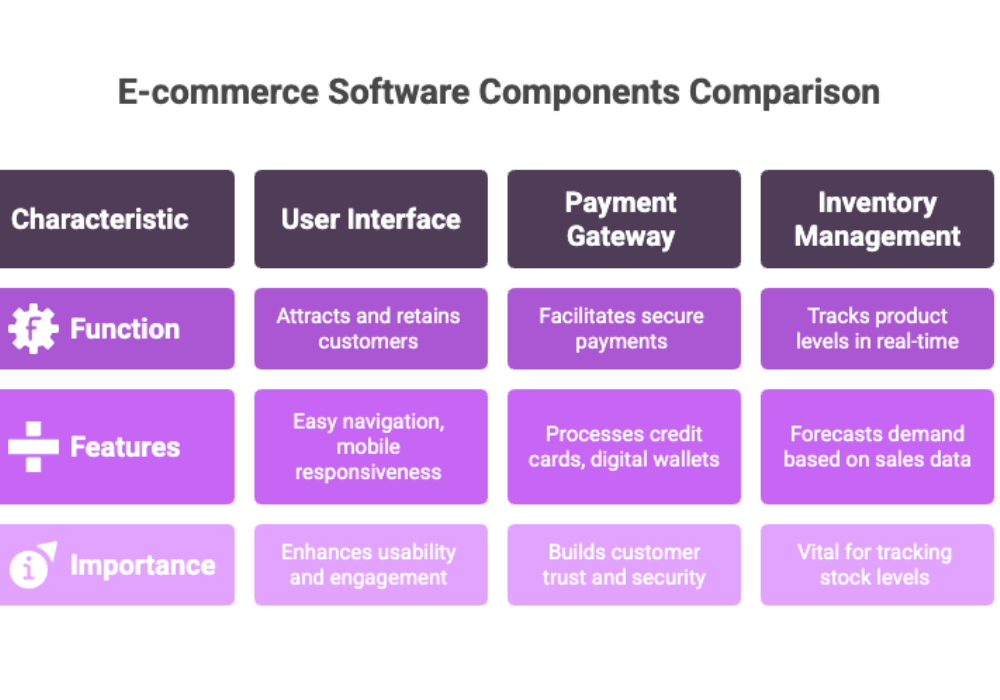

Custom vs. Ready-Made E Commerce Software
Choosing between custom development and ready-made e-commerce software is a crucial decision that depends on business needs and budget constraints. Custom e-commerce solutions provide a tailored experience, addressing specific business requirements and enabling unique features. They offer greater flexibility and scalability, allowing businesses to adapt their platforms as they grow and maintain full ownership and control over their codebase.
On the other hand, ready-made platforms can be deployed quickly and are typically more affordable due to shared development costs among users. These off-the-shelf solutions often include regular updates and support, reducing the maintenance burden on businesses. However, using off-the-shelf software may limit customization, making it difficult to create a unique brand experience and potentially hindering scalability.
Businesses should carefully consider their budget and specific needs when choosing between custom and off-the-shelf e-commerce solutions and their evolving business model. The platform should scale and adapt to changing market demands and technological advancements, ensuring long-term success for a successful business.
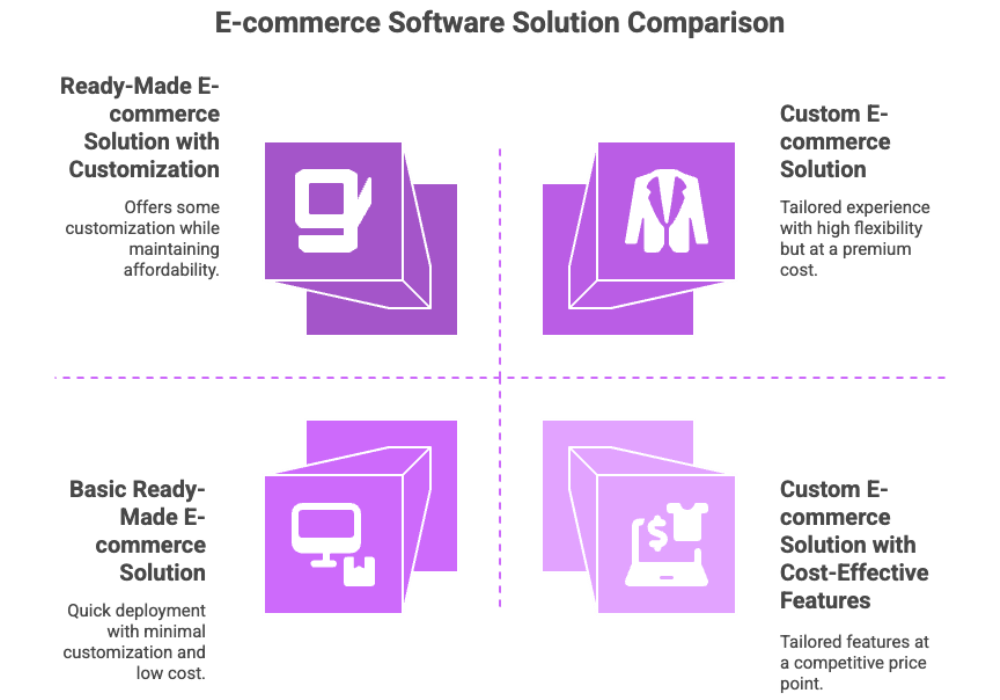

The E Commerce Software Development Process
The e-commerce software development process encompasses multiple stages, each crucial for creating a successful platform. These stages include planning, design and development, and testing and deployment. Each step plays a critical role in ensuring the final product meets business requirements and provides an excellent user experience.
Planning and Market Analysis
Planning and market analysis are the initial steps in e-commerce software development. Competitive analysis helps identify market trends and target audience preferences, which is crucial for creating a platform that meets customer expectations. A thorough internal assessment of business needs before selecting an e-commerce solution is also necessary.
Evaluating ongoing costs, such as maintenance and transaction fees, helps avoid budget overruns. Integrating marketing tools within e-commerce software improves visibility and customer acquisition, contributing to business goals, business growth, and success.
Design and Development
The design phase focuses on creating engaging e-commerce applications and the overall system architecture. The development phase involves coding and implementing features on both frontend and backend components. This stage ensures the applications meet business requirements and provide an excellent user experience.
Streamlining checkout processes, like using single-step checkouts and removing unnecessary fields, reduces cart abandonment rates and increases sales. Effective e-commerce software helps businesses save time and resources by automating various operations.
Testing and Deployment
Rigorous testing in e-commerce software development ensures all functionalities work as intended and provide a seamless user experience. User acceptance testing (UAT) confirms that the application meets end-user requirements before going live, validating usability and functionality.
The deployment phase includes setting up servers and configuring databases, ensuring platform accessibility. Thorough testing before deployment enhances user satisfaction and prevents costly post-launch issues.
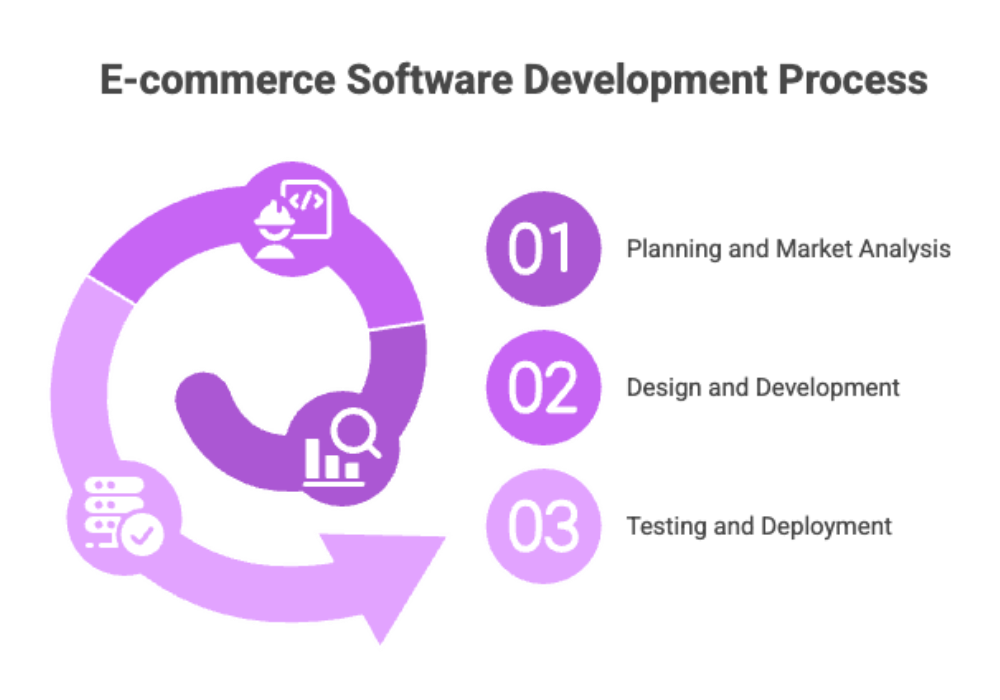

Advanced Technologies in E Commerce Software Development
Advanced technologies play a significant role in modern e-commerce software development. Choosing the right technology stack is crucial for the scalability and performance of the e-commerce application. Integrating AI in e-commerce enhances automation and supports personalized user experiences, allowing platforms to analyze consumer behavior and deliver tailored product suggestions.
Blockchain offers a decentralized ledger that significantly improves security and transparency in transactions. Its inherent security, public, and decentralized control are significant benefits for e-commerce systems.
Additionally, data analytics helps e-commerce businesses extract insights from user data, informing better decision-making. The incorporation of IoT in e-commerce applications facilitates a seamless experience across different shopping channels.
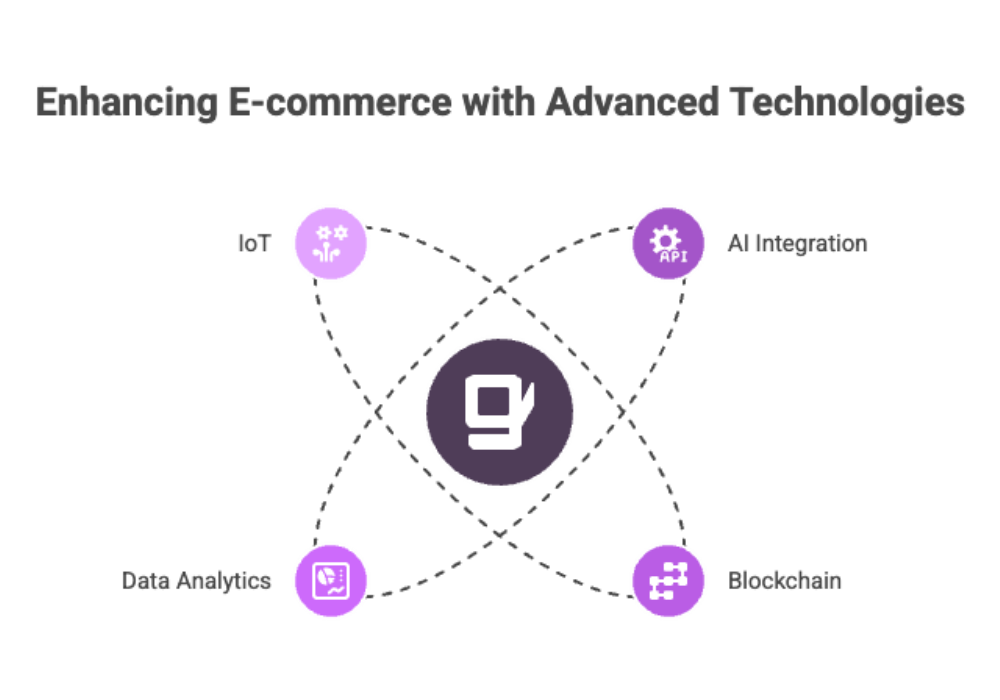

Enhancing Customer Experience with E Commerce Software
Personalized shopping experiences can increase revenue, with personalized product recommendations accounting for a substantial portion of online stores sales. Popular e commerce platforms enhance customer satisfaction by providing seamless purchasing and tracking options, ensuring a fast-loading website, and prioritizing ease of navigation.
Transparent communication regarding shipping and return policies builds trust and improves customer satisfaction. Reliable shipping options are essential, with many customers expecting fast delivery as a standard in their online shopping experience.
Prominently showcasing customer reviews can significantly influence new customers’ purchasing decisions. Establishing an omnichannel customer experience helps meet varied customer preferences.
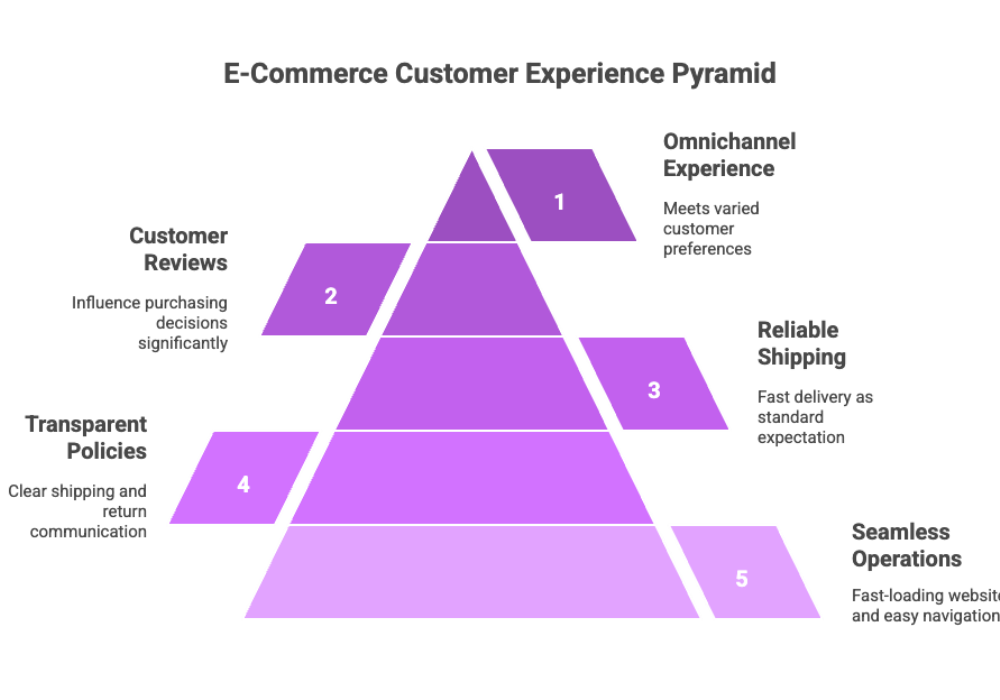

Security Considerations in E Commerce Software Development
Cybersecurity in e-commerce protects against hacks and breaches that can result in lost profits and reputational damage. In 2018, e-commerce businesses accounted for 32.4% of all successful cyber attacks, highlighting the industry’s vulnerability. Essential security measures include SSL encryption, secure payment gateway integration, and regular security audits.
Implementing anti-virus, firewalls, and encryption protects customer financial information. Regular PCI-DSS compliance is necessary for any business handling credit card transactions, and multi-layer security strategies, like using a Content Delivery Network, can mitigate DDoS attacks.
Maintaining the integrity of customer data is crucial to analyze customer data, protect customer data, and enable businesses in preserving their trust in an online business.
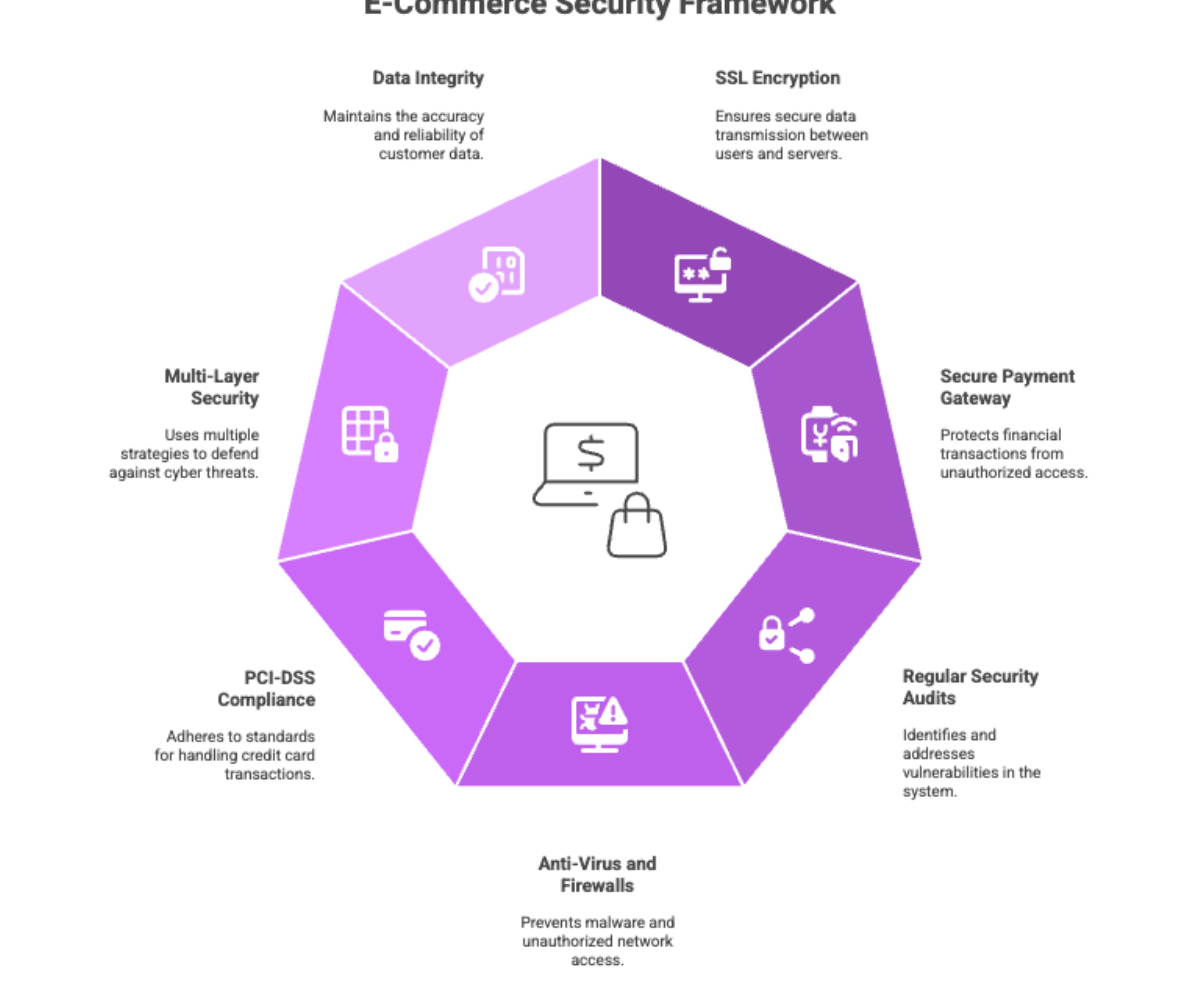

Choosing the Right E Commerce Software Development Company
Choosing the right e-commerce software development company involves assessing the vendor’s industry experience and technical capabilities. Case studies provide insights into past projects and solutions, while positive reviews from past clients indicate reliability. The e-commerce vendor should offer reliable support options, ideally including 24/7 availability, and maintain transparency in communication.
Consider important project factors such as the company’s needs and goals, overall budget, scalability features, and customization capabilities. Select a vendor that aligns with your business objectives and can provide tailored solutions to achieve long-term success.
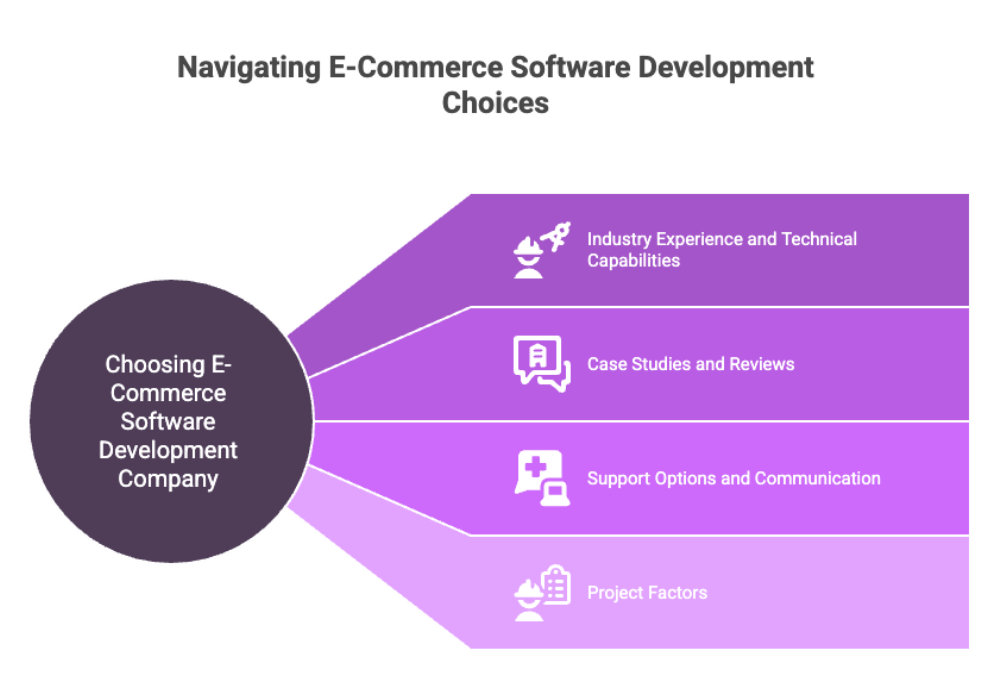

Summary
In summary, e-commerce software development is a multifaceted process that requires careful planning, design, and implementation. From understanding the key components and choosing between custom and ready-made solutions to navigating the development process and leveraging advanced technologies, each step is critical to creating a successful online platform. Enhancing customer experience, ensuring robust security measures, and selecting the right development company are also vital for long-term success in the e-commerce market.
By following the best practices and solutions outlined in this guide, businesses can create a robust and scalable e-commerce platform that meets customer expectations and drives growth. The journey to e-commerce success is complex, but with the right approach and tools, it is entirely achievable. Embrace the possibilities and transform your online business today.

Frequently Asked Questions
This section addresses common queries about e commerce software development, helping you understand key concepts, compare solutions, and make informed decisions for your online business.
What are the key components of e-commerce software development?
The key components of e-commerce software development are user interface design, payment gateway integration, and inventory management systems. These elements are crucial for creating a seamless shopping experience and efficient backend operations.
How do custom e-commerce solutions compare to ready-made platforms?
Custom e-commerce solutions provide unmatched flexibility and scalability, making them ideal for unique business needs. In contrast, ready-made platforms are more budget-friendly and allow for quicker implementation.
What advanced technologies are used in e-commerce software development?
E-commerce software development leverages advanced technologies such as AI for personalized experiences, blockchain for enhanced security, and IoT to create a seamless shopping journey. These innovations are crucial for staying competitive in the market.
Why is security important in e-commerce software development?
Security is vital in e-commerce software development to safeguard against cyber threats and ensure customer trust while meeting payment processing standards. Implementing robust security measures fosters confidence and protects sensitive information.
How do I choose the right e-commerce software development company?
To choose the right e-commerce software development company, evaluate their experience, technical skills, support services, and how well they align with your business objectives and budget. This thorough assessment will ensure you find a partner suited to your needs.
